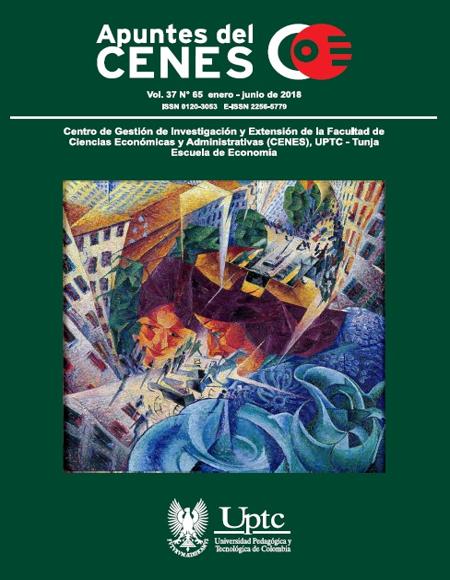The South American Pacific and its integration with China and Asia

Abstract
The present work confronts the industrial policies followed by the South American nations with those of the Southeast Asian countries, and states that the influence of the Washington Consensus on the former allowed to disrupt their industrial development, while the type of economic development in Asia has been more successful, framed in recent decades in what is known as the Beijing Consensus. A comparative study is made of the evolution of different economic and social indicators of the South American nations, as well as of Malaysia, Thailand and Vietnam, using United Nations-Comtrade trade data and World Bank World Development Report 2015 indicators. It is found that the persistence of industrial policies and the link to international trade explain an important part of the Asian results. A recovery of these policies in South America could help to activate the economic dynamics offered by the export of natural resources.Keywords
Latin America, South American Pacific, Washington Consensus, Beijing Consensus, industrial policy, export of raw materials.
Author Biography
Jaime Torres González
Profesor Titular del Programa de Comercio Internacional y Finanzas - UJTL - Bogotá
References
- Abdullah, M. (2010). Malaysian Industrial Development. Kuala Lumpur. MIDA.
- Astori, D. (1980). Algunas características de la industrialización en América Latina. Revista Comercio Exterior, 30(12), 1386-1400.
- Banco de la República de Colombia. (2016). Cuentas de la balanza de pagos. Recuperado de www.banrep.gov.co
- Banco Mundial. (2016). World Development Report 2015. World Development Indicators. Retrieved from http://www.worldbank.org/en/publication/wdr2015
- Birle, P. (Ed.). (2013) Chile a 40 años del golpe de Estado. Repercusiones y memorias. Berlín: Ibero-Amerikanisches Institut.
- Chen, W. (2016). Size Matters? Renminbi Internationalization and the Beijing Consensus. Working Paper 2016/002 - NUS Centre for Asian Legal Studies. Singapur: National University of Singapur.
- Chuhue, R., Na, L. J. & Coello, A. (Ed.). (2012). La inmigración china al Perú. Arqueología, historia y sociedad. Lima: Editorial Universitaria, Universidad Ricardo Palma e Instituto Confucio.
- Comisión Económica para América Latina –Cepal-. (2005) Más allá del Consenso de Washington: una agenda de desarrollo para América Latina. México: Cepal.
- Comisión Económica para América Latina –Cepal-. (2016) La inversión extranjera directa en América Latina y el Caribe. Santiago de Chile: Cepal.
- Corporación Nacional del Cobre de Chile Codelco S.A. (2003-2015). Informes anuales de estados financieros consolidados, años 2003 a 2015. Chile: Codelco.
- Empresa Colombiana de Petróleos –Ecopetrol-. (2016) Estados financieros 2015. Recuperado de http://www.ecopetrol.com.co/documentos/inversionistas/PG-consolidado-2015.pdf
- Fukasaku, K. (2004). Overview: Miracle, Crisis and Beyond. OECD Development Centre, Paris. Retrieved from https://www.oecd.org/pcd/31970815.pdf
- García, Humberto. 2009. La situación de la industria automotriz en México. Colegio de la Frontera (COLEF), México D.F.
- Hausmann, R., Wang, J. & Rodrik, D. (2005). What you export matters. Working Paper 11905. Cambridge, MA: National Bureau of Economic Research. DOI: https://doi.org/10.3386/w11905
- Ostry, J., Loungani, P. & Furceri, D. (2016, June). Neoliberalism: Oversold? Magazine Finance and Development, IMF.
- Kanbur, R. (2008). The Co-Evolution of the Washington Consensus and the Economic Development Discourse. Retrieved from www.people.cornell.edu/pages/sk145
- Kim, L. (2001) La dinámica del aprendizaje tecnológico en la innovación. Recuperado de http://www.oei.es/salactsi/limsu.pdf
- Kuei-Lin, C. & Hsueh-Liang, W. (2003) Policy Design and Implementation of Taiwan´s Privatization. Retrieved from https://www.oecd.org/daf/ca/corporategovernanceofstate-ownedenterprises/2482165.pdf
- Lavaux, S. & Ochoa, P. (2010). Estado del arte. El conflicto en Perú. Bogotá: Facultades de Ciencia Política y de Relaciones Internacionales, Centro de Estudios Políticos e Internacionales –CEPI-, Universidad del Rosario.
- Li, X., Brødsgaard, K. E. & Jacobsen, M. (2009). Redefining Beijing Consensus: Ten Economic Principles. Denmark: Asia Research Centre, Copenhagen Business School.
- Mahtaney, P. 2007. India, China and Globalization – The Emerging Superpowers and the Future of Economic Development. Palgrave Macmillan Eds. DOI: https://doi.org/10.1057/9780230591547_9
- Ocampo, J. A., Stallings, B., Bustillo, I., Velloso, H. & Frenkel, R. (2014) La crisis latinoamericana de la deuda desde la perspectiva histórica. Santiago de Chile: Cepal. DOI: https://doi.org/10.18356/d2e46298-es
- Palma, J. G. (2009). Flying Geese and Waddling Ducks: The Different Capabilities of East Asia and Latin America to “Demand-Adapt” and “Supply-Upgrade” their Export Productive Capacity. In M. Cimoli, G. Dosi & J. Stiglitz (eds.), The Political Economy of Capabilities Accumulation: the Past and Future of Policies for Industrial Development, (diferentes págs.). Oxford: Oxford University Press, 2009. DOI: https://doi.org/10.1093/acprof:oso/9780199235261.003.0008
- Ramo, J. C. (2004). The Beijing Consensus. London, UK: The Foreign Policy Centre.
- Salama, P. (2012). China–Brasil: industrialización y “desindustrialización temprana”. Revista Cuadernos de Economía, 31(56), (diferentes págs.).
- Tan, C. I. (2012). Managing a Plural Society: Issues and Challenges of Multiculturalism in Malaysia. In The Asian Conference on Cultural Studies, Official Conference Proceedings 2012.
- Torres, J. (2016, marzo). El reto de las exportaciones de China para los países en desarrollo. Revista Análise Económica, 34(65), 345-377. DOI: https://doi.org/10.22456/2176-5456.51522
- Ulloa, C. (2006). 25 años de inestabilidad política en el Ecuador. Revista Brújula, 6(9), 37-53.
- Walter, R. (2006). Geschichte der Weltwirtschaft. Eine Einführung. Köln, Deutschland: Böhlau Verlag. DOI: https://doi.org/10.36198/9783838527246
Downloads
Download data is not yet available.
